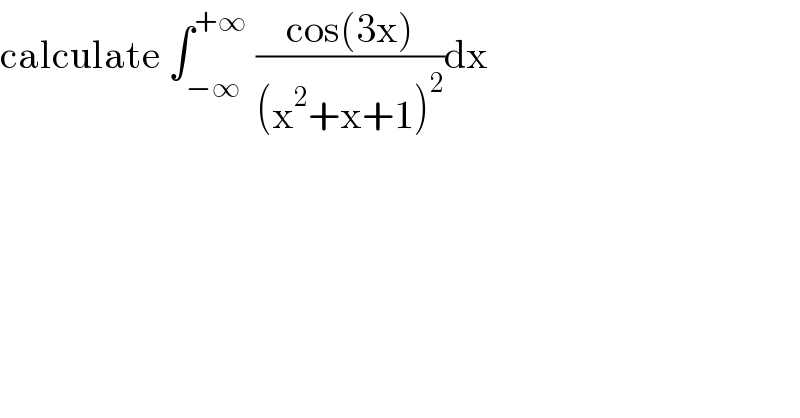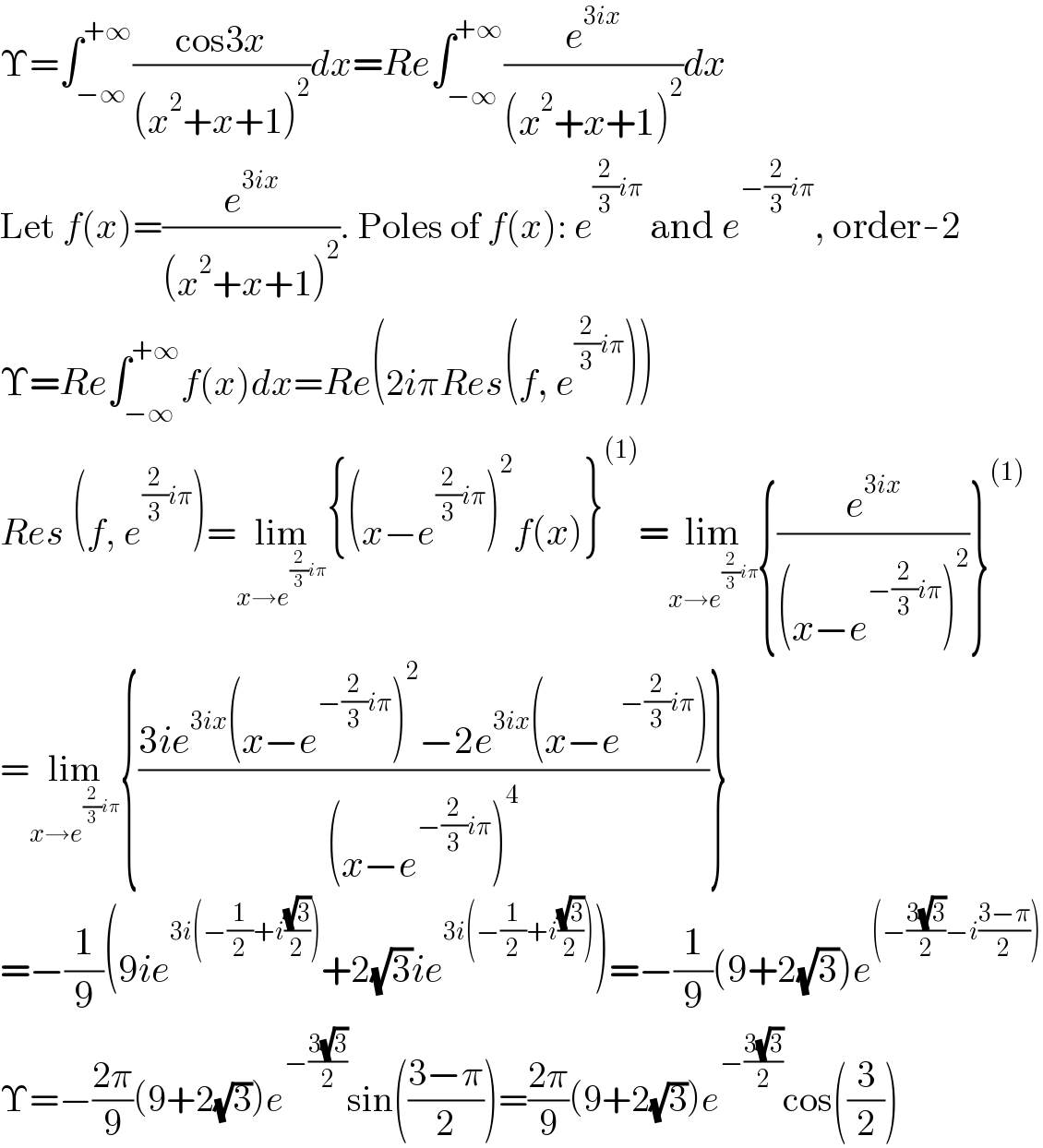
Question and Answers Forum
Question Number 162016 by mathmax by abdo last updated on 25/Dec/21

Commented by MJS_new last updated on 25/Dec/21

Commented by mathmax by abdo last updated on 25/Dec/21

Answered by Ar Brandon last updated on 24/Mar/22

Commented by Mathspace last updated on 26/Dec/21

Commented by Ar Brandon last updated on 26/Dec/21

Answered by Mathspace last updated on 26/Dec/21

